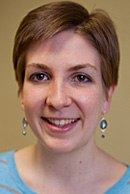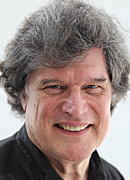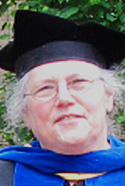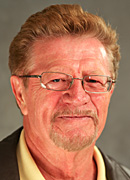It seems at a young age Mary Kate Smith already was destined to be a teacher. Volunteering as a fourth grader on weekends to help her teacher with a class for pre-kindergarten students, it was clear what path her career would follow.
Sixteen years later, Smith’s passion for teaching burns as bright as ever. She soon will put her passion into practice in Germany as the recipient of a Fulbright U.S. Student Program Scholarship. Beginning in August, Smith will spend the 2013-14 academic year as a teaching assistant at either a German middle or high school in a city still to be determined.

Smith is the second Lawrence student this spring to be awarded a Fulbright Scholarship and 16th since 2008.
“Teaching has been my main focus for as long as I can remember,” said Smith, a senior double degree candidate with majors in German, instrumental music education and violin performance from Charlottesville, Va. “I’ve always thought about teaching math or German or music. I’ve just always wanted to teach.”
She completed her student-teaching certification last fall in the Whitefish Bay school district, teaching orchestra at both the high school and middle school level. She also spent four years teaching in the Lawrence Academy of Music’s String Project and gives private violin lessons.
“I’ve had lots of tutoring job as well,” said Smith, who first began learning German as a five-year old from an au pair from Germany who lived with her family for a year. Six years at a Waldorf School, where basic German was part of the curriculum, further exposed her to the language.
Her Fulbright Scholarship will take her to Germany for the fourth time. She first visited in 2007, spending a year in Berlin after graduating from high school as a participant in the Congress-Bundestag Youth Exchange Program. She returned in 2010 as part of Lawrence’s “Berlin: Experiencing a Great City” course and spent the fall of 2011 on the IES Berlin off-campus study program.
Quintessential Lawrence student
“As a German, violin performance and music education triple major, Mary Kate is the quintessential Lawrence student,” said Brent Peterson, professor of German and Smith’s academic advisor. “Her love of German culture, particularly those parts of it connected to Berlin, has made her an enthusiastic German student, aided by her spectacular language abilities and her exceptional skills as a reader of literary and other cultural texts. She is a great credit to Lawrence and will be a terrific representative of American culture in the tradition of the Fulbright awards.”
Smith says her current “rough plan” is to get a few years of classroom experience before going to graduate school with the ultimate goal of teaching at the university level.
“One of the challenges I’m facing is deciding if I want to set up life here or in Germany,” said Smith, a five-year member of the Lawrence Symphony Orchestra and a founding member of Lawrence’s student chapter of the American String Teachers Association.
“It’s an absolute honor and privilege to receive a Fulbright Scholarship,” Smith added. “I’m excited about this incredible opportunity to learn and grow and I’ll do my best to live up to the what the Fulbright represents.”
The flagship international educational exchange program sponsored by the U.S. government, the Fulbright Program is designed to increase mutual understanding between the people of the United States and those of other countries. Recipients of Fulbright grants are selected on the basis of academic or professional achievement, as well as demonstrated leadership potential in their fields. The program operates in more than 155 countries worldwide.
Since its establishment in 1946, the Fulbright Program has provided approximately 300,000 students, scholars, teachers, artists and scientists the opportunity to study, teach and conduct research, exchange ideas and contribute to finding solutions to shared international concerns.
Fulbright alumni have achieved distinction in government, science, the arts, business, philanthropy, education, and athletics. Forty Fulbright alumni from 11 countries have been awarded the Nobel Prize, and 75 alumni have received Pulitzer Prizes.
About Lawrence University
Founded in 1847, Lawrence University uniquely integrates a college of liberal arts and sciences with a nationally recognized conservatory of music, both devoted exclusively to undergraduate education. It was selected for inclusion in the Fiske Guide to Colleges 2013 and the book “Colleges That Change Lives: 40 Schools That Will Change the Way You Think About College.” Individualized learning, the development of multiple interests and community engagement are central to the Lawrence experience. Lawrence draws its 1,500 students from nearly every state and more than 50 countries. Follow Lawrence on Facebook.


